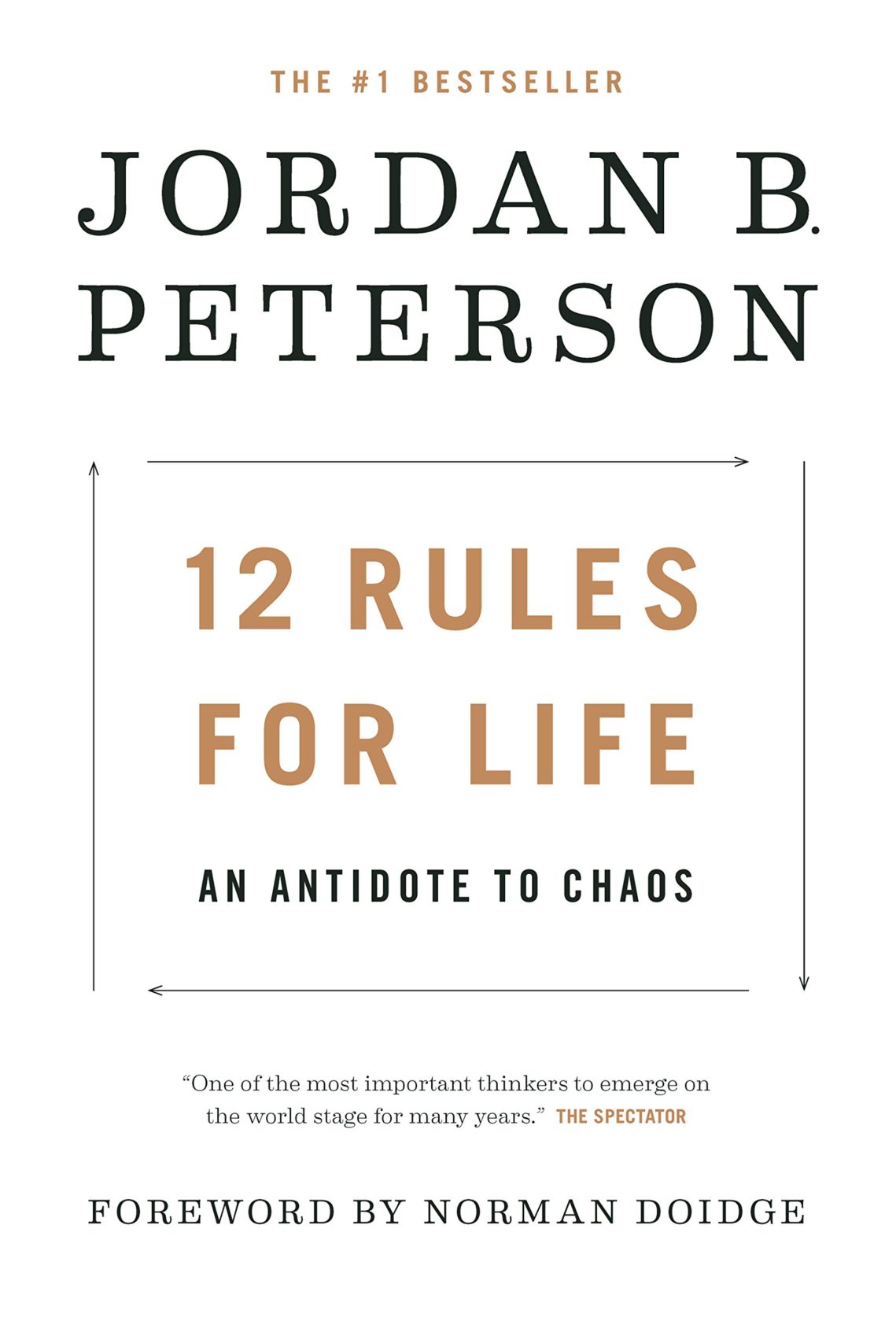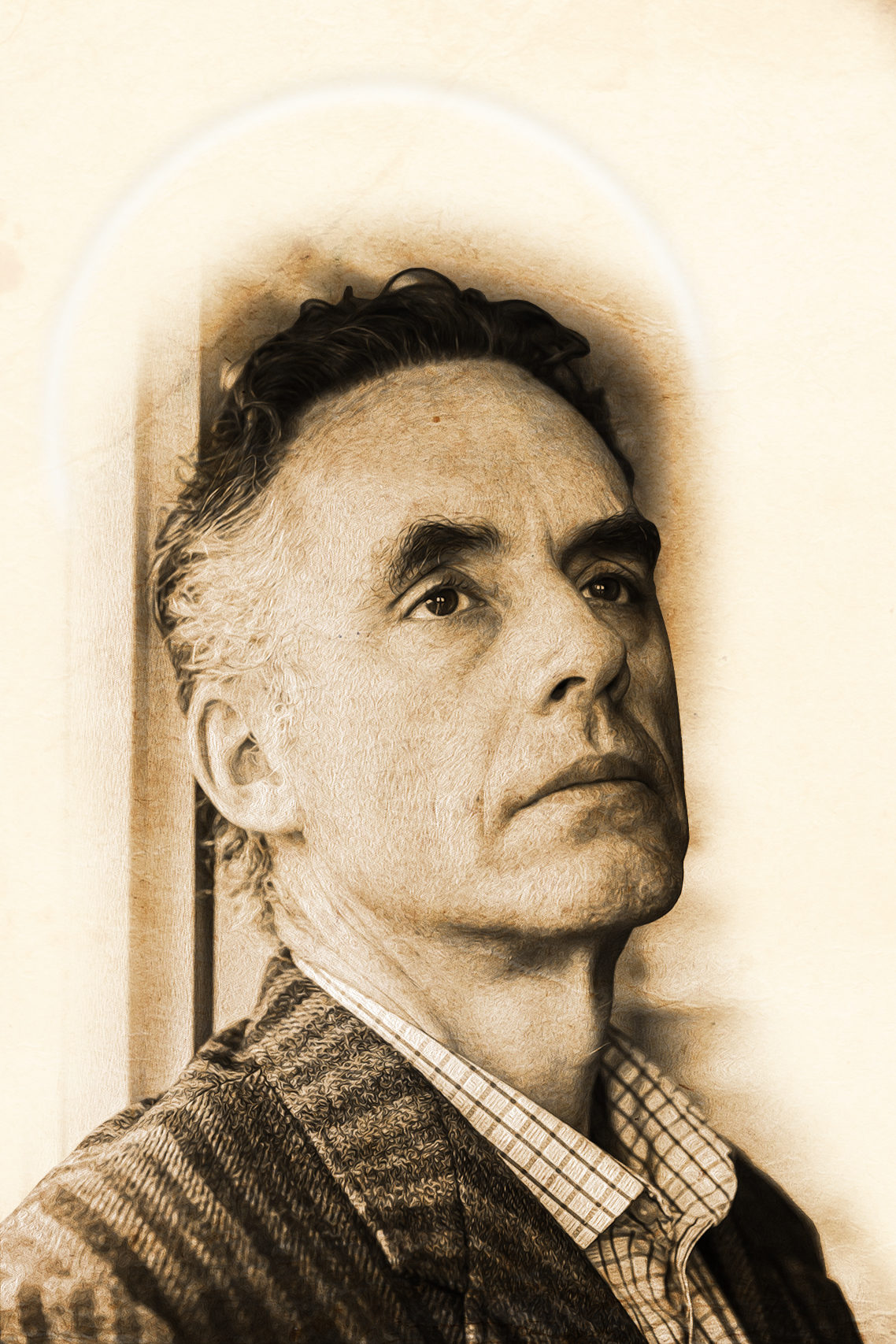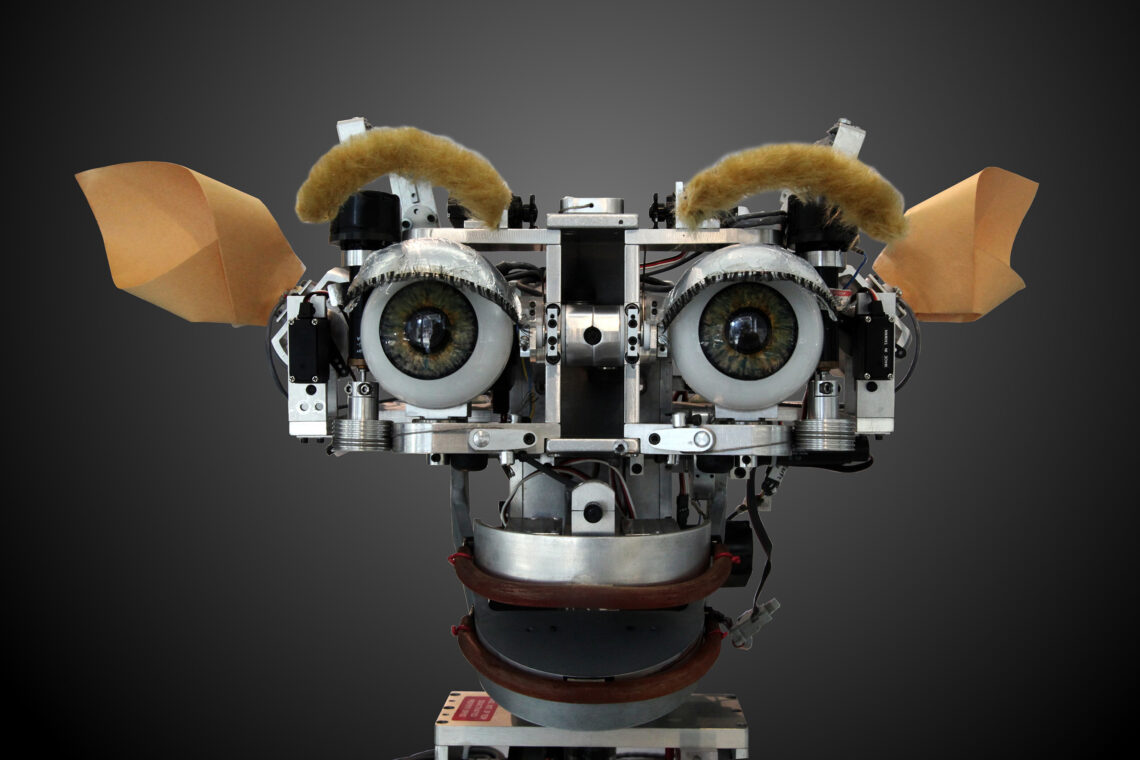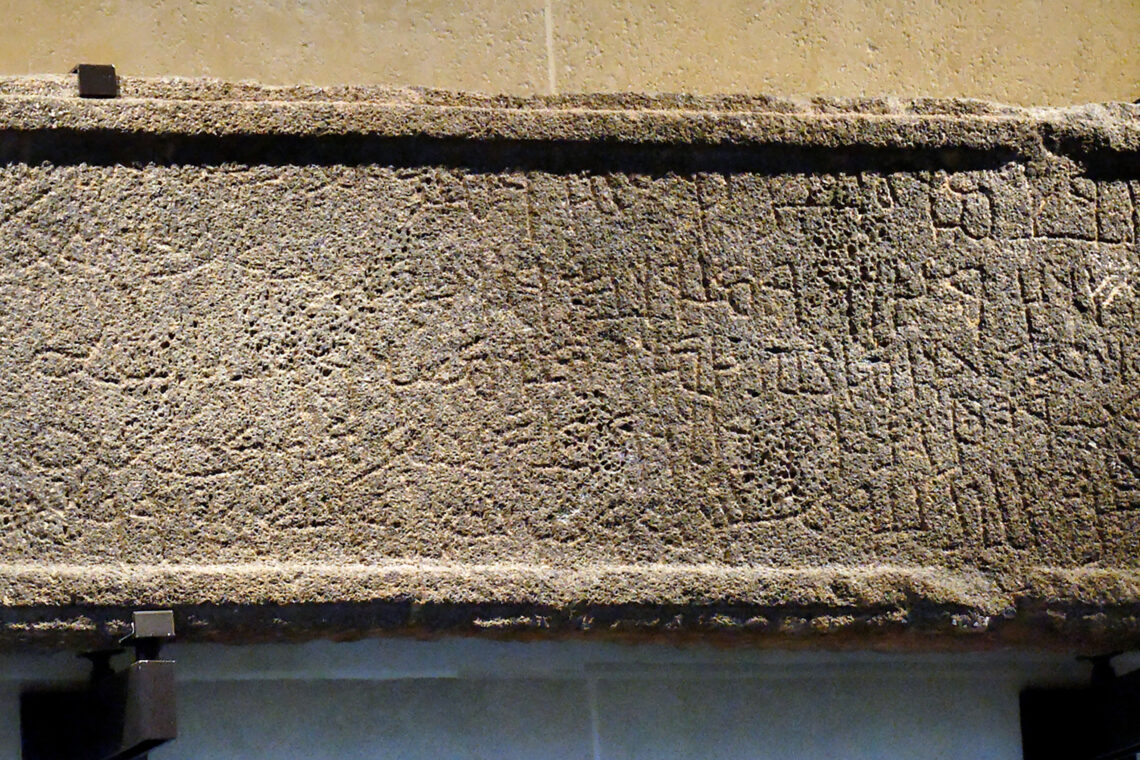Behold, ladies and gentlemen, the new prophet (I will call him Teacher from now on) who has appeared in the province of Alberta, growing up in the frontier town of Fairview, of which there is no account during or before the Great War, where temperatures can reach below 42 degrees and where the nights are even colder. Behold Jordan, son of the teacher Walter, who doesn’t like parties but drinks beer occasionally in the big city of Edmonton and starts college at Grande Prairie Regional College, some 90 miles away from home, before transferring to Edmonton, the city of all risks, to get his undergraduate degree.
We could see this enterprising boy who loves literature, philosophy, political science and biology work in a plywood mill and in a railway line in Saskatchewan, where he is promptly nicknamed Howdy-Doody, or just Howdy, by his co-workers just to test his character. But our young man is not one to fold under pressure, knowing full well the value of toughness, independence, loyalty and keeping his mouth shut before there was ever a movie called Goodfellas to remind him of those virtues. To complain of harassment on that site would have been worse than committing suicide.
It is this man who remains loyal to his depressed friend Chris till the very end of his troubled life, stays a devoted husband to his childhood sweetheart and wife Tammy, and who shouldered the grave and severely damaging auto-immune illness of his daughter Mikhaila. Not unsurprisingly, this generous son, husband and father found his way to a clinical psychology program in Montreal. While in training, and in front of the most abject human misery, he made the decision to tell his patients the truth and avoid what Sigmund Freud called “life-lies.” It is the truth, our Jordan knows unequivocally, that makes us fully human. Didn’t Jesus, as recorded in Mark, say, “For what shall it profit a man if he gain the whole world and forfeit his soul?”
Yes, ladies and gentleman, this small-town boy (never underestimate the talent that comes out of small towns; all previous prophets came from similar places) was shaping a world view that one day he would share with the world. Long ago, he wrote a scholarly tome titled Maps of Meaning, but that book, like so many other academic books, ended up in dusty shelves or in the deeper recesses of the Internet. It may have provided the foundation for his new one, but it is really out of the portals of the Web that our Jordan reemerged in recent years to deliver his message. One never knows what paths may lead to glory, as long you don’t lose sight of the Kingdom of God.

The scripture he put forth is an antidote to chaos condensed into twelve rules. Only twelve, mind you. The thought of writing a book would have never occurred to him had he not answered the question “What are the most valuable things everyone should have?” on a website called Quora and hit a home run with readers, or when he appeared on Canadian television. An astute literary agent saw what everyone else had seen and asked him to share his wisdom with the world. Our generous Teacher obliged and now we are reaping the rewards. The ways of the Creator are unfathomable.
So gather, O Good People, to hear what this man has to say. This is a tale of truths long forgotten, but which could renew hope in a better world, if you listen.
You all know that life is full of pain and sorrow. The strong are always preying on the weak and wealth flows to those who dominate. This is true of lobsters and humans. This is how we were created. You may say that we should all be equal, but the truth is we don’t all contribute equally. Only a very small faction of us produces the good things we enjoy. This is true everywhere and in every profession. “We are not equal in ability or outcomes, and never will be,” says the Teacher. “A very small number of people produce very much of everything. The winners don’t take all, but they take most, and the bottom is not a good place.”
Alas! We are condemned to live in a hierarchical world, one in which the losers suffer the most. Yet, for such people not all is lost. They could make things better by sleeping regularly, having a good protein-laden breakfast (our Teacher is on a diet of meats and greens), and confront their predicament bravely and without any self-deceptions. They should stand tall, never droop or hunch back, and, most of all, speak their truth, regardless of the consequences that may befall them. More than that: Our Teacher wants people to embrace danger to allow a substance called serotonin to flow unhindered in our bodies and make people feel stronger and good about themselves. Our fate is, to a certain degree, in our own hands. Good to know.
No, I am not saying that suffering can be avoided. Our Teacher’s good book suggests that it can only be mitigated, which is not bad. Our ancestors fought mightily to impose some order on our chaotic world, so please join me in giving tribute to the men and women who, throughout the ages, have tried to ease our suffering and alleviate our pain. We have become dangerously arrogant with our incessant pride in our powers of innovation, but can anyone reading this honestly tell me if their computer or car could be powered without the work done by our predecessors? We are, good people, the heirs of an inter-generational, cross-cultural effort. A little humility may save us from the sins of self-aggrandizement and may even allow us to be more at peace with ourselves.
You are all too aware, Dear Reader, that life is not a bowl of cherries, so don’t be too hard on yourself. Make good friends who want the best for you. In so many ways, nature and people are always conspiring against us (that’s why suffering is the condition sine qua non of our existence), but giving up and surrendering to vice is the clearest path to perdition. Such path requires no effort. What we need is a friend to encourage and help us stand on our feet, one who would show us better options, not condone our defeatist attitude.
To such a friend don’t hesitate to reveal yourself and share your darkest secrets. Don’t, at any cost, retreat into false safe spaces. “Dare, instead, to be dangerous.” Start modestly and move steadily to achieve your goals, however minor. And don’t forget to have fun. Reward yourself after each achievement.
In the process of working toward your self-defined goal you may wonder whether you are missing out on something better. Don’t. No one can see everything because the world is too large and complex to behold in its entirety. Just keep your eye on your chosen prize and things will fall into place. Most importantly, seek the Kingdom of God, as Jesus says in the Sermon of the Mount, and don’t worry too much about making a living. “One does not live by bread alone . . .”
As I said before, our Teacher asks us to respect traditions and not to discard them lightly. “Each person’s trouble cannot be solved by a social revolution, because revolutions are destabilizing and dangerous.” Don’t forget that children, however innocent they look to us, need to be disciplined and surrounded by boundaries, if they are to grow healthy, make friends, and be good members of society. We must teach them to delay gratification. When they grow into adulthood, they should be able to share and be kind to strangers.
Never fear, Dear Reader. Our Teacher is very clear about the obligation to stand our ground in all circumstances. We must defend our convictions, even if they lead to death, as happened to Socrates, and even if we are forsaken by our parents, as happened to Jesus. Better to die free than live a slave. Don’t be a second-class lobster, if you can help it.
Natural life is hard enough, but our troubles get compounded by our unique capacity for evil. You could blame our consciousness for that. A poisoned gift, indeed! We are all capable of evil, but, thanks to the oppressive and bound-setting ways of culture, we are somewhat restrained for own good. Until we are not, as happens in war. Then we are shocked at our barbaric violence and, as result, develop what psychologists call post-traumatic stress disorder. One wonders what the philosopher Jean-Jacques Rousseau was thinking when he said that humans are born innocent! Beware such romantic notions.
All things being equal, pursue the most meaningful life your mind allows you to imagine. You shall be known by your “works,” not by the size of your wallet, the value of your assets, or the title of your job. Seek, in other words, freedom in God, not in lucre or status. Above all, don’t settle for what is expedient.
The best goal is to “live in truth,” that is to say, do not ever compromise yourself or your vision for the sake of ephemeral gain. Think rigorously by allowing your mind to hold two or more competing ideas, and let them hash it out until you come out with a well-considered decision. It may not be right, but it will have been forged in the fires of debate and inquiry. Let your friend listen if you want to think deeply and process serious issues you are wrestling with. You don’t have to lie down on a Freudian couch, but a good conversation should be equally liberating. Remember that listening is not easy, but it allows people to disentangle themselves out of the chaotic situations that aggrieve them and renew themselves. That’s a gift not to be taken lightly.
Also, when speaking, try to be precise. Words matter greatly. Being vague and foggy clouds our decision-making and allows chaos to expand. A conversation with clear thinking and precise expressions can save lives, actually, by imposing order on chaos, thereby reducing an overwhelming emergency to a manageable situation. So, yes, language is important.
Please don’t assume that our Teacher wants us to live in a safe world. Not at all. He wants us to let our children take risks and push boundaries, for that is how good things come to our civilization. Our Teacher is all-too-aware that this masculine energy is extremely suspect, but then he reminds us that many good things that made women’s lives better (from safer births to contraceptive pills) were invented by men. He wants us to remember that men and women have had to survive against overwhelming odds throughout history, and what mattered most in this existential battle is competence. He doesn’t quite understand current views of gender, which some say are socially constructed, while others go through a long process, including surgery, to switch biologically from male to female, or from female to male. To him, gender is either social or biological, not both.
I was rather chagrined to see our Teacher embroiled in such issues and doing his best to deal with the theories behind them. He spends an inordinate amount of time refuting and condemning Marxism and postmodernism. This humble scribe was once a Marxist who was critical of postmodernism, but such polemics have faded from view in the United States. Are they still in fashion in Canada? Marxism is actually against identity politics, which is what passes nowadays for political correctness. And Marxism has nothing to do with the atrocities of the Soviet Union. Our Teacher did well to remind us that Jesus was appalled by what Dostoevski’s Grand Inquisitor did in his name. That thinking mind, O Sage One, has to keep churning. Same thing with the postmodernist Jacques Derrida, a person who doesn’t excite me in the least. These two people are not responsible for fascism, but their views could be twisted to make the case for absurd ideologies. With a mind like yours, you might have liked Michel Foucault or the obscure Cornelius Castoriadis. The French are idiosyncratic, I grant you that, but they are not bad thinkers. What would the West be without that nation?
I diverge, Blessed Teacher. Apologies. My point is that such asides and wanderings were not really necessary. They pull your precious work down to the level of academic street fights, which you and I know are more drama than substance. The academics who oppose you have no idea what hit them. No one does, to be honest. This is new. That’s why I use the word prophet. It fits, shall we say, the archetype.
I am with you when you say that one has to be tough to go through life and not depend on a nanny state to provide security and comfort. You worry about inequality (as I do) and about the corporatization of colleges and universities (as I also do). To addresses these challenges, we need to think, but, unfortunately, we don’t have systems of thought that allow for nuance and differentiation. Can you imagine what US or Canadian radicals would make of Morocco (my country of birth) if asked to think of a politics of liberation? The best they can do is project their provincial concerns. Talk about homogenization!
I have now finished my account of the Teacher’s book and will let my readers ponder how to proceed next. I am sure you are wondering what exactly is going on, so let me assure you that I, too, am not sure. One cannot use a conventional review style for this kind of book or for the persona of Jordan Peterson. Have you seen the commentary by Slavoj Zizek in the Independent? It is not about the book but about the squabbles of Right and Left, the only categories that matter in North America and the so-called West these days. I know I have not done justice to the Teacher’s thought processes (one of the gifts of the book, really), but I hope that my account (even when I ask the Teacher not to bother too much with the hifalutin pronouncements of fellow academics) could help my readers get a better sense of his message. Please forgive my shortcomings. They are many. Still, I will stand up straight, keep my shoulders back, and proclaim that I have done my best. And that, as our Teacher would say, is a good start.





Has the ring of someone sick and tired of the Western canon being pointed at Islam.